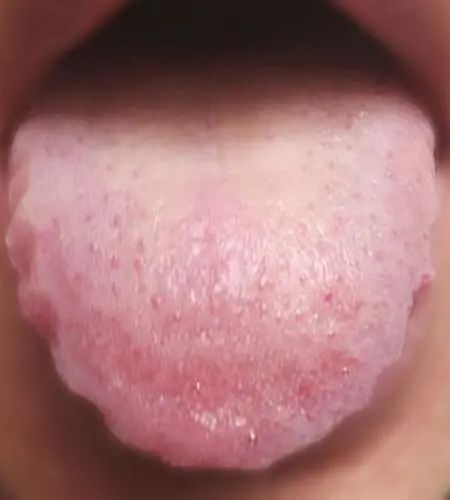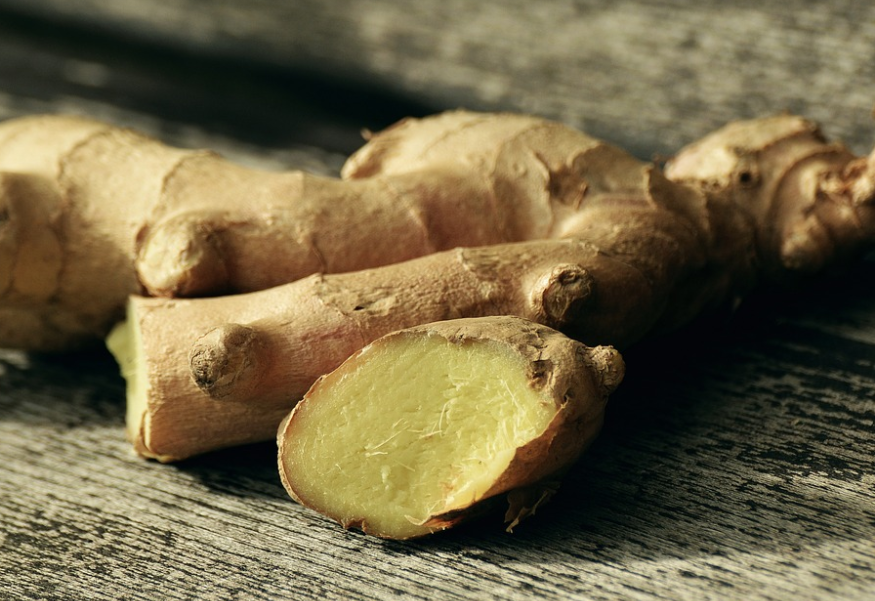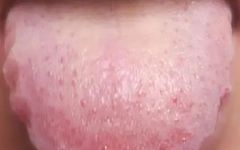
Author | Lin Zhichen Editor | Chunfeng Reviewer | Xiao Ye
Community | Add WeChat chunfeng52566, note “Join Group” to exchange knowledge of Traditional Chinese Medicine
There is a group of people who often have this trouble: every time the weather turns cool, they experience cold hands and feet; after drinking a cup of iced milk tea, they soon find themselves rushing to the bathroom with stomach pain.
Clearly, they have done nothing, yet they start sweating while sitting; they get sick more easily than others, and every cold they catch seems inevitable… These symptoms may seem unrelated, but they share a common root—insufficient Yang Qi, also known as Yang Deficiency.
What is Yang Qi?
Yang, in contrast to Yin, is associated with rising, activity, and warmth. “Yang Qi is like the sun in the sky; if it loses its place, it shortens life and becomes unremarkable,” states the Huangdi Neijing. The Yang Qi in the human body is akin to the sun in nature, as all things in the natural world rely on sunlight for growth.
Similarly, in the human body, growth and various physiological functions depend on the promotion of Yang Qi. If there are issues with the operation and function of Yang Qi, it can lead to premature death or even loss of life.Thus, Yang Qi is fundamental to human life; it is the sun within the body.
Having established the importance of Yang Qi, how does it function in our bodies? What are the manifestations of Yang Qi deficiency?
“Yang rises and protects the exterior,” states the Neijing. Yang Qi, with its upward and outward characteristics, plays a role in guarding the muscle surface and resisting external pathogens. The protective function of Yang Qi can be viewed from two aspects.
The Protective Function of Yang Qi
On one hand, Yang Qi maintains the normal function of sweat secretion at the muscle surface, preventing excessive leakage of Yin fluids. It is like our muscle surface is a city wall, with Yang Qi controlling the opening and closing of the city gates. When the body senses heat and needs to cool down, Yang Qi appropriately opens the gates to release sweat, maintaining normal body temperature.
If Yang Qi is deficient, the gates become uncontrollable, leading to uncontrolled sweating. Traditional Chinese Medicine states, “Qi follows liquid loss,” meaning that sweating also results in the loss of Qi from the body.
I once encountered a patient who reported excessive sweating, even while sitting still; he had to change clothes multiple times a day. Upon examining his tongue, it was pale with teeth marks, indicating that his excessive sweating was due to Yang deficiency, where Yang Qi could not protect the muscle surface.

On the other hand, Yang Qi at the muscle surface defends against external pathogens, preventing them from invading the body. In Traditional Chinese Medicine, external pathogens are referred to as the “Six Excesses,” which include wind, cold, heat, dampness, dryness, and fire. If the body is exposed to these pathogens, illness can occur.
In fact, these pathogens are ubiquitous in our lives, such as sudden drops in temperature or strong winds. However, most people do not fall ill when encountering these pathogens; no one catches a cold just by taking a walk outside. Why is that?
Because the Yang Qi at our muscle surface protects us. When external pathogens attack the city gates, if Yang Qi is sufficient, the defense is strong, and the pathogens cannot enter. If Yang Qi is weak, the pathogens can easily breach the defenses, leading to symptoms such as fever, cough, and nasal congestion.
Thus, individuals with insufficient Yang Qi are more prone to illness, especially during seasonal changes or flu outbreaks. I once heard of a relative who easily caught colds, even getting sick before each menstrual cycle; now I realize this was also a problem of Yang deficiency.
The Warming and Nourishing Function of Yang Qi
In addition to its protective function, Yang Qi also warms and nourishes the entire body, ensuring the normal functioning of the organs and meridians. “Yang Qi is like the sun in the sky,” providing the energy for all living things to grow.
Recall the feeling of basking in the sun—warm and full of energy. When Yang Qi is sufficient, the organs and meridians operate normally in such an environment. If Yang Qi is deficient, the body lacks warmth, leading to symptoms such as cold intolerance, diarrhea, and cold hands and feet.

Nowadays, many people enjoy drinking cold beverages like milk tea. While a cup of iced milk tea is refreshing, it can harm the Yang Qi of the spleen and stomach.
Without the warming nourishment of Yang Qi, the functions of the spleen and stomach become abnormal, leading to conditions like diarrhea. For those with pre-existing spleen and stomach issues, consuming cold drinks can quickly result in abdominal pain and diarrhea.
The Neijing also mentions the function of Yang Qi with the example, “Yang Qi nourishes the spirit and softens the tendons.” Yang Qi “nourishes the spirit,” providing warmth to the spirit, which can invigorate the mind.
Individuals with insufficient Yang Qi often feel fatigued, lack motivation, and may feel drowsy. Yang Qi “nourishes the tendons,” warming the body, which helps keep the tendons supple, bones strong, and Qi and blood flowing smoothly. Those with Yang deficiency may experience sore lower back and legs, difficulty standing for long periods, and cold extremities due to poor circulation.
How to Nourish Yang?
Having discussed the functions of Yang Qi, how can we nourish our Yang Qi during winter?
Yang Qi in the body is like a burning fire; when the fire goes out, one becomes “lifeless.” Therefore, to nourish Yang Qi, we must not only avoid excessive consumption but also continuously add fuel to the fire.
First, we should avoid excessive consumption of Yang Qi and refrain from activities that harm it.
Health Preservation Methods from the Huangdi Neijing
“In the three months of winter, this is called closing and hiding.” The Neijing states that during these three months, all living things are dormant, and so is the Yang Qi in humans, thus we should “not disturb the Yang.”
“Go to bed early and rise late, waiting for sunlight,” as winter days are shorter, we should align with nature, sleeping early and waking late, getting up only when the sun rises and the temperature rises.
“Keep your emotions subdued, as if lying in ambush, without personal desires or gains,” during winter, one should control their emotions and maintain a calm mindset, avoiding excessive excitement that disturbs the latent Yang Qi.
“Avoid cold and seek warmth, preventing excessive sweating that causes loss of Qi,” during winter, stay away from cold environments and avoid excessive sweating that can lead to loss of Yang Qi. Exercise should be moderate; unlike summer, winter exercise should not be too intense or excessive, avoiding heavy sweating and breathlessness.
To exercise moderately in winter without harming Yang Qi, Traditional Chinese Medicine health practices are a great choice. In the winter mornings, practicing TCM health exercises such as Ba Duan Jin (Eight Pieces of Brocade), Tai Chi, or Yi Jin Jing (Muscle-Tendon Change Classic) can help you feel your body move, relax your muscles and tendons, and promote emotional well-being, starting the day with vitality.
On the basis of not excessively consuming Yang Qi, we should also understand how to nourish Yang Qi by adding fuel to the “fire pit” of Yang Qi.

Dietary Nourishment for Yang
We can consume some sweet-warm, kidney Yang-nourishing, and spleen Yang-nourishing foods to replenish Yang Qi, such as beef, venison, lamb, yam, and fennel.
The Jin Gui Yao Lue contains a recipe that combines food and medicine—Angelica and Ginger Lamb Soup. The angelica in the recipe is sweet and warm, nourishing blood and invigorating circulation; ginger is spicy and warm, harmonizing the stomach; lamb is warm in nature, replenishing Qi and blood. This soup is very suitable for those who feel cold and have cold hands and feet in winter.
As the saying goes, “Eat radishes in winter and ginger in summer,” radishes are cool and help clear heat. When consuming nourishing foods to replenish Yang, pairing them with white radish can prevent excessive richness that affects the flow of Qi.
Foot Soaking for Yang Nourishment
Our feet are the farthest from the heart, and the pathways for Qi and blood circulation are long, making them susceptible to cold pathogens. Many women experience cold hands and feet.
Soaking feet in hot water at 40-50 degrees Celsius before bed in winter can effectively dispel cold pathogens and enhance the body’s ability to resist external pathogens.
Adding herbs like ginger, mugwort, and achyranthes to the water can enhance the warming and nourishing effects. After soaking, pressing the Yongquan (Kidney 1) point on the sole and the San Yin Jiao (Spleen 6) point at the ankle can promote Qi and blood circulation and dispel cold pathogens.

Moxibustion for Yang Nourishment
Moxibustion in winter is very effective for dispelling cold, warming, invigorating blood, and unblocking meridians. For nourishing Yang in winter, moxibustion can be applied to the Zu San Li (Stomach 36), Zhong Wan (Ren 12), and Guan Yuan (Ren 4) points.
To locate the Zu San Li point, sit with your knees bent and press your palm on the center of your knee; move your middle finger outward by one finger width to find the point. Moxibustion at Zu San Li can benefit the spleen and stomach, warm the meridians, harmonize Qi and blood, and prevent disease.
The Zhong Wan point is located on the midline of the abdomen, 4 inches above the navel, equivalent to the width of 5 fingers. Moxibustion at Zhong Wan is effective for stomach diseases, cold stomach, and vomiting.
The Guan Yuan point is located 3 inches below the navel, equivalent to the width of 4 fingers, and is a key point for health preservation. Moxibustion at Guan Yuan can regulate Qi and blood, nourish the kidneys, and strengthen vitality.
The optimal moxibustion time is 10 to 15 minutes. During winter, be sure to keep other parts of the body warm while moxibusting.

Recommended Reading:
Only three herbs to relieve the pain of shingles!Recommended Products:
Struggling to learn TCM? Not sure how to approach common diseases? Check out this practical Clinical Handbook of Traditional Chinese Medicine! Starting from basic theory, it will help you master common internal, external, gynecological, and pediatric diseases! Clickthe mini program or read the original text to purchase!
▼ Click the card below to discover more TCM knowledgeThe content of this article is for reference only and does not represent the views of this publication. Non-TCM professionals should not attempt self-medication.Some images in this article are sourced from the internet for public dissemination; we thank the authors of these images. If there are any copyright issues, please contact us for removal.Original submissions: [email protected] (email), chunfeng52566 (WeChat); Business cooperation: tcmrun (WeChat)

